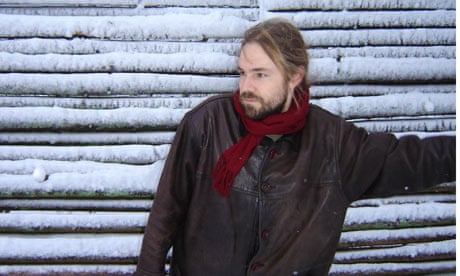For most people, the sound of the accordion conjures up images of bearded morris dancers, or jolly sea shanties sung with raised tankards of real ale. But in Denmark, the accordion has a classical life, with a whole generation of serious musicians developing new means of expression on an instrument Mark Twain once called "a Steinway on your lap".
British audiences have a chance to experience this next week, at the Huddersfield contemporary music festival, in a concert featuring the work of Jexper Holmen, a young Danish composer. Holmen, who lives in Elsinore and has a touch of the antic prince about him, admits that he cannot play the accordion properly. He came across the instrument by chance, finding an old one in his grandfather's attic alongside some vintage musical boxes. The discovery inspired the piece that will be premiered in Huddersfield: Lullabies, a work for three accordions and a chorus of children's musical toys. Holmen calls it "a musical exploration of the unspoken ghastliness of the lullaby".
Are lullabies so dreadful? "Well, in Denmark, we have many songs designed to reassure children that they are safe from monsters," Holmen says. The irony, he adds, is that it is those songs that put the idea of monsters in children's heads in the first place.
Lullabies is, literally, as long as a piece of string. The performers pull the cords of the toys and play along until their music runs down. Another Holmen work on the Huddersfield bill, Oort Cloud, was inspired by the patterns of icy debris in dying solar systems. For this piece, the accordion's long sustain is fed through an array of electronics to create an ethereal wall of sound. The result is a hypnotic drone, like the sound of whales calling.
Alongside Holmen will be two Norwegian accordionists, Frode Andersen and Frode Haltli, accomplished classical players who graduated from the prestigious accordion programme at the Royal Danish Academy of Music. So are there lots of high-flying jobs for accordionists in Scandinavia? "I would never aspire to become a full-time classical accordion soloist," admits Haltli, "because I wouldn't be able to eat." In addition to solo work, Haltli plays with a jazz ensemble and a folk group, and has released a CD of new arrangements of traditional Norwegian melodies.
Does he find it frustrating to have studied hard on an instrument that is complex to master, yet is still regarded as a joke by some people? "On the contrary," he says, "the accordion is incredibly easy to play. That is why it became such a popular instrument. When the accordion first appeared in Norway, it almost wiped out the fiddle tradition because it takes much less effort to produce an acceptable sound."
The old-fashioned squeezeboxes Haltli is referring to are primitive beasts compared with the highly evolved instruments classical players now use. Until the beginning of the 20th century, accordions had a restricted range, which limited them to cameo roles in the classical canon: Tchaikovsky included an optional part for accordion in his Orchestral Suite No 2, but only to provide a splash of rustic colour. The first major composer to write seriously for the accordion was Paul Hindemith, while Alban Berg incorporated it into his opera Wozzeck; in neither case did the music stray far from its proletarian roots.
Then came Mogens Ellegaard, born in 1935, who became the first professor of accordion at the Royal Danish Academy of Music. He bolstered the instrument's status by encouraging composers to write for it. The process continues today with such composers as Luciano Berio, Harrison Birtwistle, Thomas Adès and Magnus Lindberg.
As far as Holmen is concerned, the future lies in taking the accordion to its extremes. In his hands, the instrument can conjure up what sounds like catastrophe on a cosmic scale. "Some of my pieces are supposed to be like running a marathon," he says. "You can no longer feel your fingers by the end of them."
Jexper Holmen plays St Pauls Hall, Huddersfield, on 27 November. Box office: 01484 430528.
